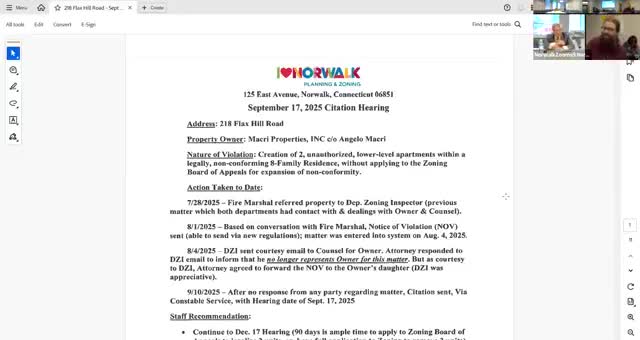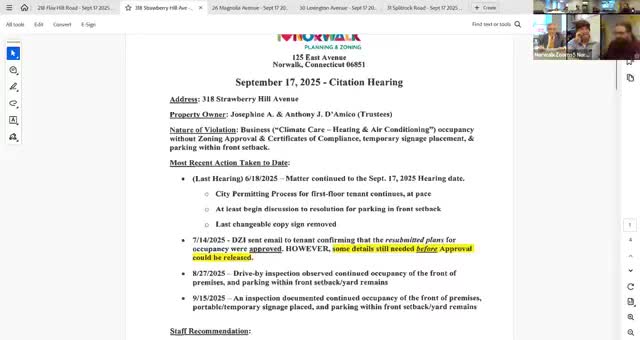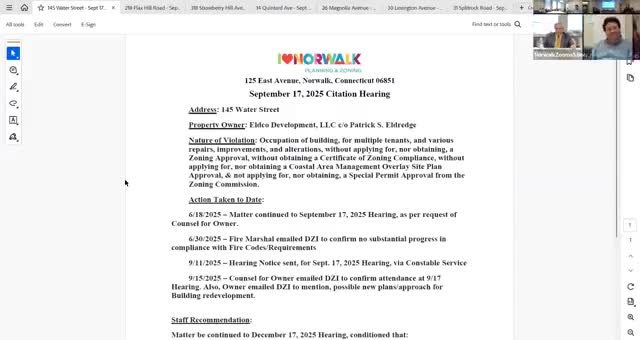Article not found
This article is no longer available. But don't worry—we've gathered other articles that discuss the same topic.

Hearing continued for large multiunit at 218 Flax Hill while owner’s counsel seeks administrative resolution

Owners of 31 Split Rock given January 2026 return date after filing revised plans and arranging carpentry work for accessory dwelling unit

Owner of 30 Lexington requests time while property remains condemned; hearing continued to Dec. 17

Owner of 26 Magnolia shows progress after attic and garage units vacated; contingent fine set if work stalls

ClimateCare tenant cited for unpermitted occupancy, temporary signs and outdoor storage; owner told to start eviction or face contingent fine

Owner of 145 Water Street told to show substantial progress by Dec. 17 amid fire, permit and FEMA concerns

